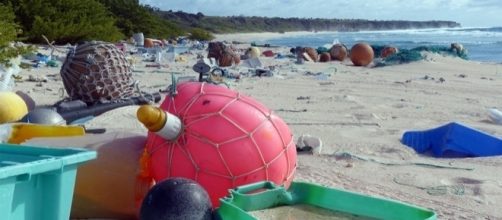Henderson Island might well be the Earth's most polluted island, according to a study. The study was done by researchers from the United Kingdom's Royal Society for the Protection of Birds (RSPB) and the University of Tasmania's Institute for Marine and Antarctic Studies in Australia. The researchers involved in the study were shocked by the amount of plastic waste they found, saying that it defied their expectations. It also made it clear that currents in the Pacific Ocean can move plastic debris over long distances without them breaking down at all.
Plastic waste on the island
The researchers found that Henderson Island, located in the eastern Pacific Ocean, has the highest density of Pollution due to human activity of any place on Earth. A stunning 99.8% of the pollution on the uninhabited island is from plastic waste. Researchers estimate that around 38 million pieces of plastic, weighing an estimated 17.6 tons (38,801 pounds) pollute the island. Every day an estimated 3,500 new pieces of plastic waste wash up on the beaches of Henderson Island.
A large majority of the debris on the island, an estimated 68%, is not even visible on the island's beaches. It is believed that up to 4,500 pieces of waste per square meter is buried at a depth of up to 10 centimeters (3.39 inches).
This is being pointed to as only the latest, as well as one of the most extreme, examples of the disastrous extent of plastic pollution affecting the marine environment. That an island this untouched and remote is being impacted shows that every part of the world is being affected by plastic pollution.
More about Henderson Island
As mentioned before, Henderson Island is uninhabited and located in the eastern Pacific Ocean. It is the largest of the four islands that make up the Pitcairn Island Group. The island measures 6 miles by 3.2 miles (9.6 by 5.1 kilometers). It also has a square area of 14.4 square miles (37.3 square kilometers). It is notable for its status as a United Nations Heritage Site, a status it was given back in 1988.
It is also one of the world's last two raised coral atolls that has not been massively changed by invasive species, mining, or bomb testing.
Henderson Island has extraordinary biological diversity for its size. There are ten endemic species of plants and four endemic species of land birds that can only be found on the island. Also, about one-third of the insects, snails and slugs on the island are endemic. There are also 15 non-endemic bird species and 41 non-endemic plant species that live there. The whole of the land is covered in 5 to 10 meters of knotty scrub forest.


